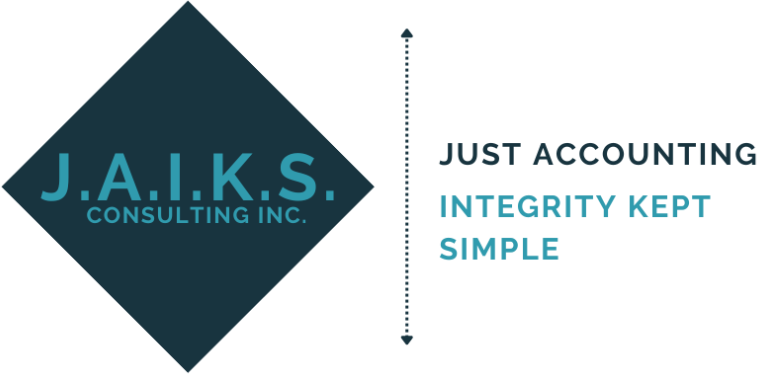J.A.I.K.S. BLOG
Welcome to J.A.I.K.S. Blog, a place where we will provide you with a variety of resources on accounting, taxation and other related subjects suited for both individuals and/or their businesses.
We hope you can find the answers to your questions and/or curiosities, and always know we are here to help if you need more.
Follow us on Facebook or find us on LinkedIn - we are always eager to give you more!
Disclaimer:
The content provided in this blog is for general informational purposes only and is not intended as professional accounting, tax, or financial advice. While efforts are made to ensure the accuracy and timeliness of the content, errors or omissions may occur. The content does not constitute a client-advisor relationship. Readers should consult with a Chartered Professional Accountants or other financial professional for advice tailored to their specific needs. We are not liable for any actions one might take based on the information provided in this blog.
Bare trusts and Updated Reporting Rules for 2024
The Canada Revenue Agency (CRA) announced that bare trusts will not be required to adhere to updated tax-reporting rules for the 2024 tax year.
This delay provides more time for taxpayers and accountants awaiting final revisions to a policy that has drawn criticism for its complexity. Originally, the new reporting rules were introduced in 2022 to improve tax compliance, but they were suspended for 2023 after concerns emerged that the rules would be overly challenging for many Canadians, especially those involved in bare trusts.
Since the exemption, the government has been working on specific adjustments to account for bare trusts, including draft amendments proposed in August. Ryan Minor, director of tax at Chartered Professional Accountants of Canada, welcomed the latest exemption, citing it as a predictable move given the minority government’s uncertain ability to pass new legislation. Minor noted that without this exemption, taxpayers could be left to follow outdated rules that may require extensive information gathering and legal interpretation, complicating compliance further.
Bare trusts, in which a trustee manages property strictly at the direction of a beneficiary, are common in situations like parents co-signing on their child’s mortgage or being listed on a child’s bank account. Critics argue that these rules could unnecessarily burden taxpayers with legal and accounting costs, as seen in a recent *Globe and Mail* survey. The CRA’s decision to exempt bare trusts from filing a T3 Trust Income Tax and Information Return allows more time for the agency to refine guidelines, which is a relief for taxpayers and accountants navigating these regulations.
Please reach out to our office if you have questions surrounding your situation and bare trusts.
With credit to Sean Kilpatrick/The Canadian Press and The Globe & Mail


Comments